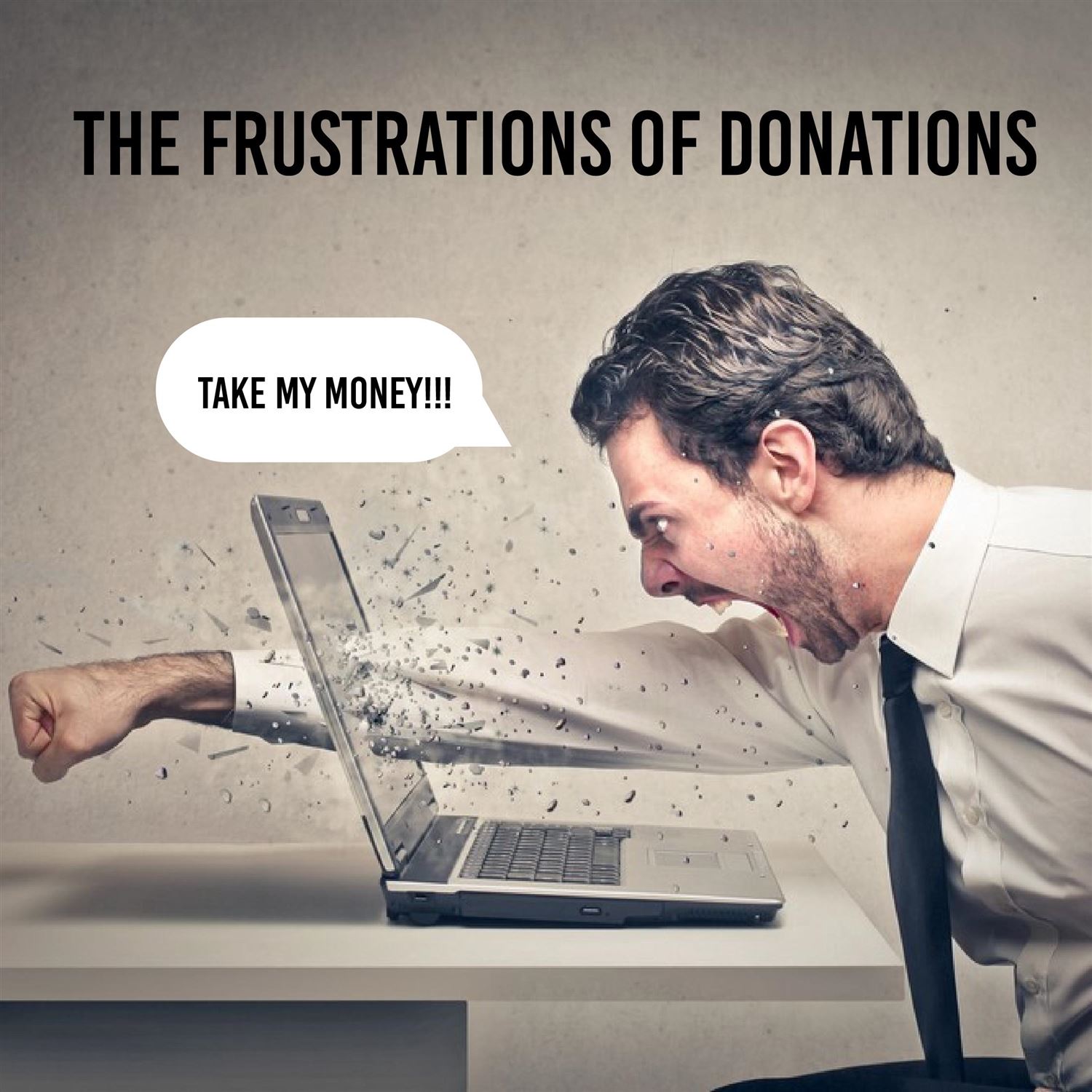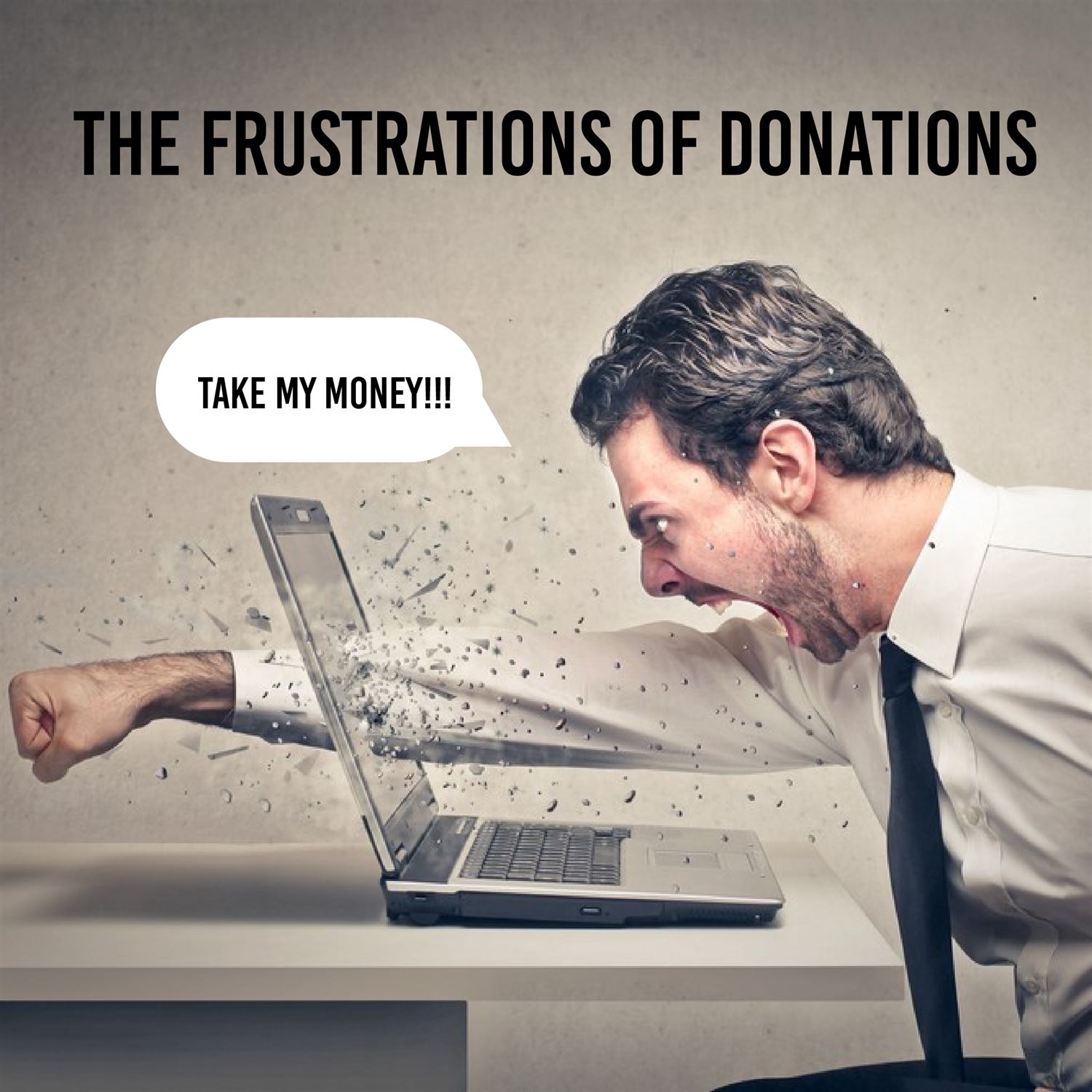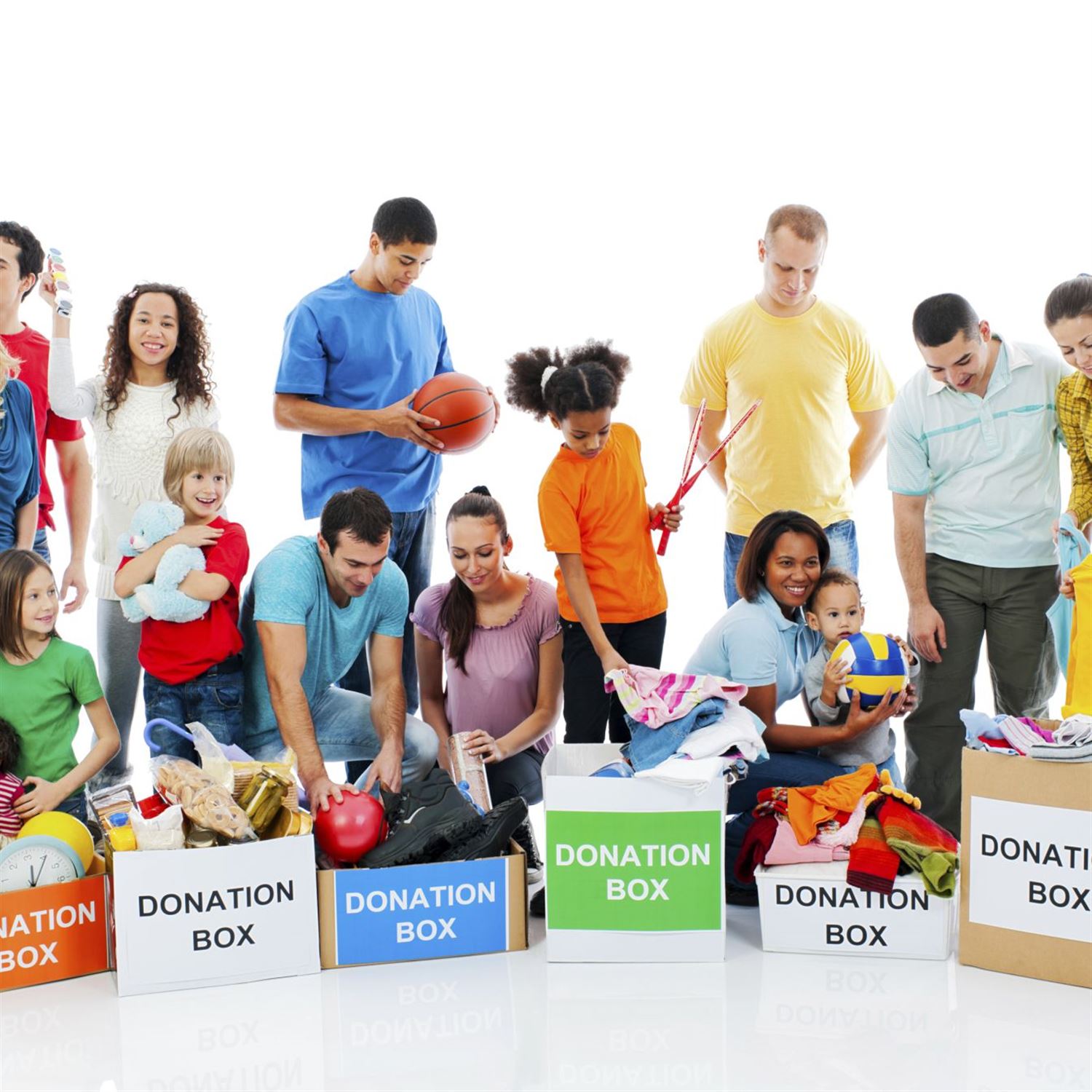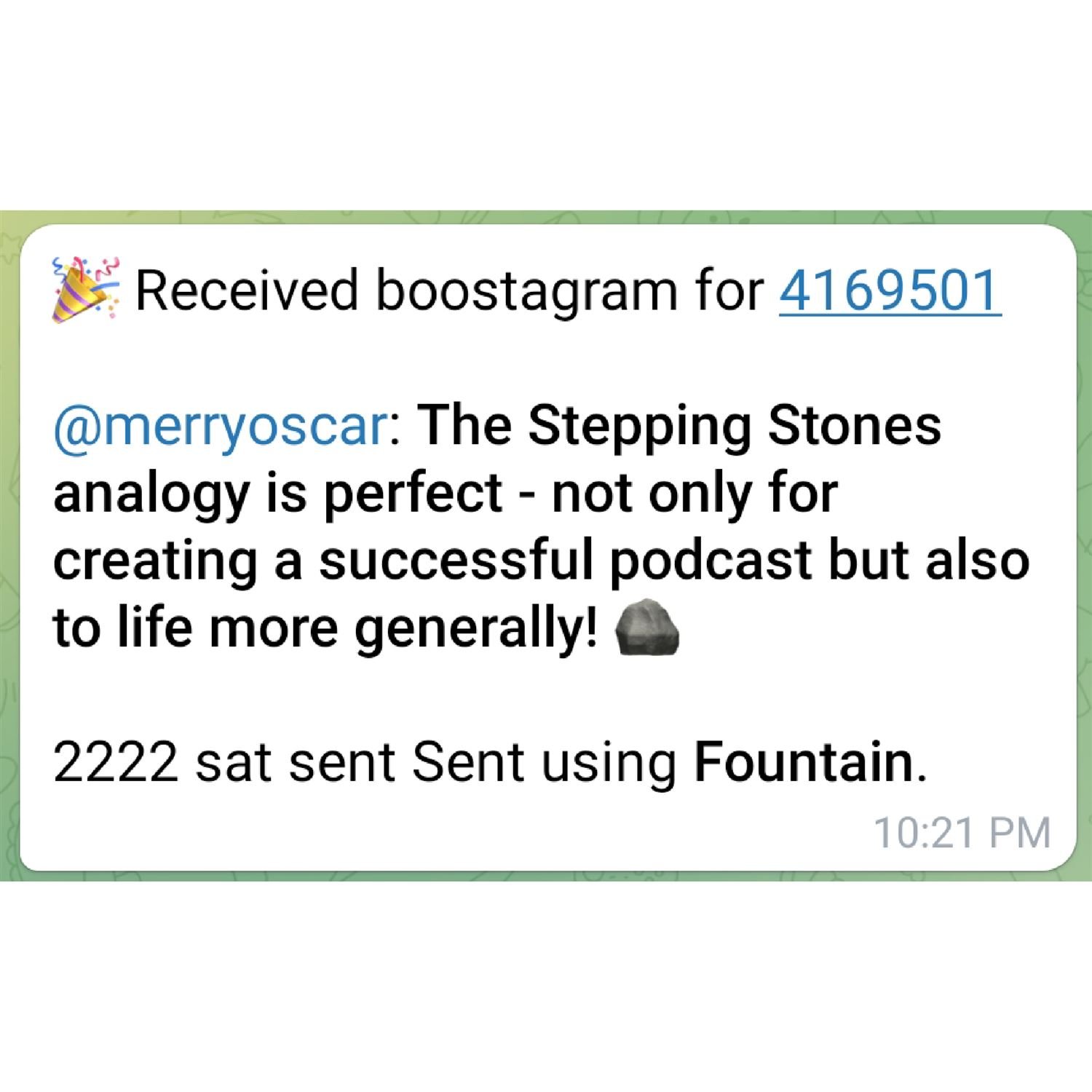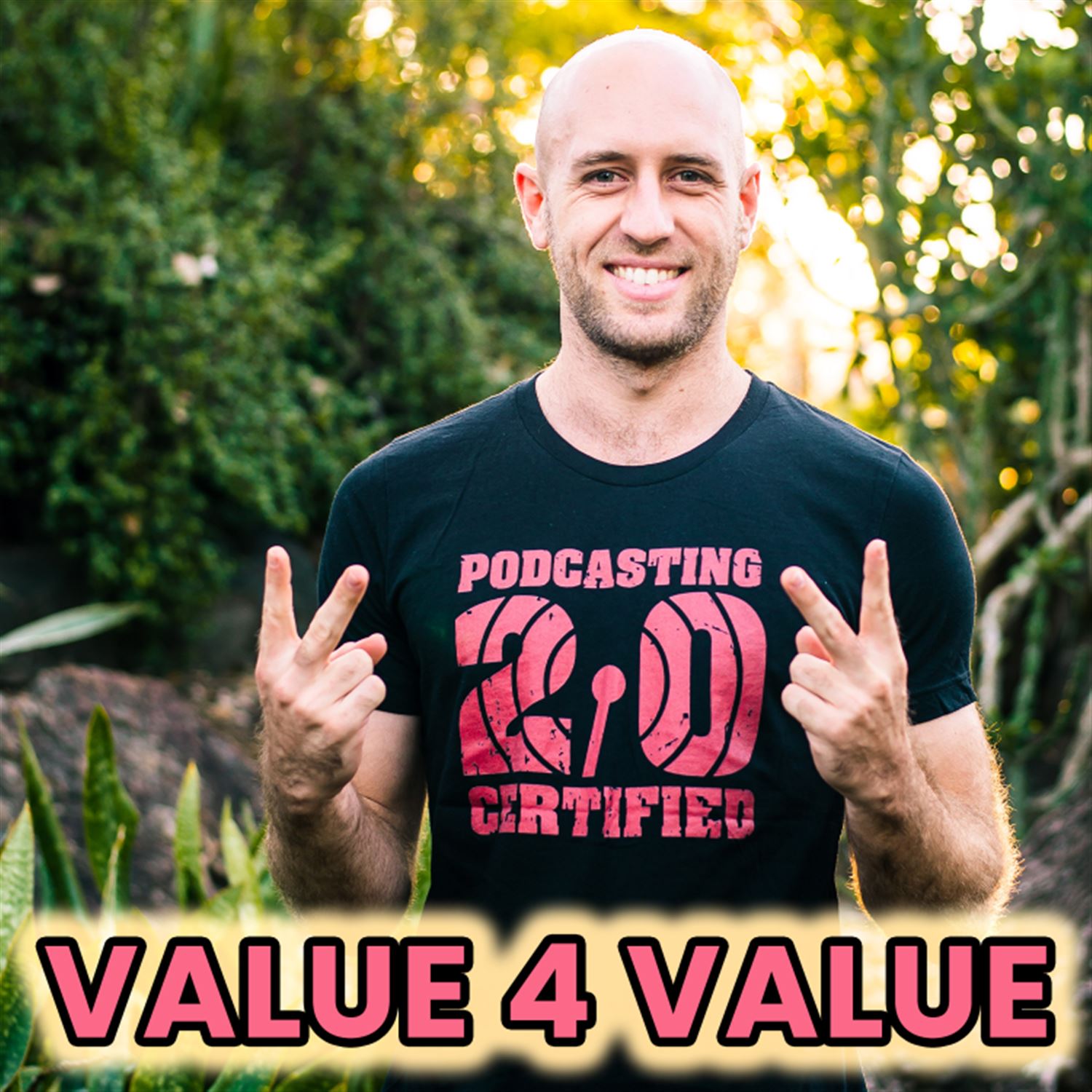Have you ever bought something you didn't need (or even want) just to show some love?
In Ep #7 I explore why donating right now can be a pain in the ass and how this might change in the future. I recount some personal experiences trying to give value to people who deserve it but had an annoying time doing this. However, with the value for value model and the technology behind cryptocurrencies this is making it easier to donate and to change the mentality behind donations.
Boostagram shoutout to Oscar Merry from Fountain.FM (a Podcasting 2.0 app) that gave some value to the V4V podcast, much appreciated!
Value 4 Value Support:
Boostagram: https://www.meremortalspodcast.com/support
Paypal: https://www.paypal.com/paypalme/meremortalspodcast
Connect With Kyrin/Mere Mortals:
Website: https://www.meremortalspodcast.com/
Discord: https://discord.gg/jjfq9eGReU
Twitter/X: https://twitter.com/meremortalspods
Instagram: https://www.instagram.com/meremortalspodcasts/
TikTok: https://www.tiktok.com/@meremortalspodcasts
In Ep #7 I explore why donating right now can be a pain in the ass and how this might change in the future. I recount some personal experiences trying to give value to people who deserve it but had an annoying time doing this. However, with the value for value model and the technology behind cryptocurrencies this is making it easier to donate and to change the mentality behind donations.
Boostagram shoutout to Oscar Merry from Fountain.FM (a Podcasting 2.0 app) that gave some value to the V4V podcast, much appreciated!
Value 4 Value Support:
Boostagram: https://www.meremortalspodcast.com/support
Paypal: https://www.paypal.com/paypalme/meremortalspodcast
Connect With Kyrin/Mere Mortals:
Website: https://www.meremortalspodcast.com/
Discord: https://discord.gg/jjfq9eGReU
Twitter/X: https://twitter.com/meremortalspods
Instagram: https://www.instagram.com/meremortalspodcasts/
TikTok: https://www.tiktok.com/@meremortalspodcasts
[00:00:00]
Unknown:
Welcome you beautiful, beautiful soul to the value for value podcast. My name is Kyrin, and I'm indeed a podcaster. I've got a couple on the run at the moment, Mere Mortals, Mere Mortals book reviews, this one Reseñas In Spanglish. And this is a podcast for those who want to explore the value for value model with me. And what is that? Well, essentially, you might be an independent creator. So you're someone who is creating something, but it's not particularly tangible. It's not a physical object, it's not something that you would go to a market and do a direct exchange of value with a customer of some sort. So now you're creating value in whatever form it might be audio, video, visual, something that is transmitting more in the in the broadcast in the heirs, and you would like to receive some value back in that. And so it's not necessarily just for money. So you can also get time or talent in return. So asking people to do things for you, or they can help you out by sharing your message, whatever it is. And this podcast is exploring that. And today, I'm going to be exploring the question of donations. And so the act of donating, if you will, and here's a question for you. And one asked myself, have you ever bought something you didn't need, or even one just to show some love? So today's episode is called episode seven, the frustrations of donations. And I'm going to be examining the act of donating and why this might be changing. So first of all, I want to experience or I want to tell you about some of my own frustrations that I've had in the past. So when I first got into podcasting about four years ago, and this is as a listener, I found Jordan B. Peterson. And I got tremendous value from his examination of the human psyche of psychology, of the meta fears of all of these, you know, mythology, all of these brilliant things that he was talking about. And I listened, I devoured so many of his podcasts of his podcast, and then also the video stuff that he was putting up on YouTube, all of these sorts of things. And I wanted to give back to him. But there was no real donation button at that time, there was no way for me to do it easily. So I ended up buying a bunch of his things. So this is such things as the self authoring the future authoring programs, these things which I didn't particularly need, will want, but I did it just to show some love. Some other examples of this, there was a guy I used to follow called Roosh V, who helped me a lot with regards to interacting with women of getting out of my own shell, he was a pickup artist. And so even though his books were available to be gotten online for free, if I use BitTorrent, or whatever, uTorrent, whatever, streaming service like that, I could actually do that. But I said, you know, what, I want to give some value to him. So I bought the books, even though I'd already sort of read them and didn't need to do that. Another one, Sam Harris, his app of the meditation, waking up at, I didn't particularly need it. But once again, I'd listened to his podcast for a long while, I devoured a lot of his things and said, You know, I'm gonna do this, just because there's no real easy way for me to, to give back money to him. And the frustrations were, I suppose that there was no way for me to easily do it. And then also, I knew what was being siphoning off elsewhere. So one of the things I've started doing recently to make myself more charitable to get in the act of, of, I suppose the psychology of, of what it is to give and to give to the world in general has been I've been giving to give well, so there's just a, an Effective Altruism charity. So it's one that looks at different metrics and tries to give out the value or money to those who can make the best use of it.
Because if you've done any research into charities, you'll know most of them are pretty terrible in the terms of how much of your money is actually getting out to them. So in this one, you know, it's it's offering a better returns on your, your your donations, if you want to put it that way. The problem with that is I still see how much money is getting siphoned off, particularly with international transactions. So it's going from my Australian bank account into what I imagined is a US account. And there is an international tax transaction that is going boom, straight from that, you know, not a huge amount, but still enough, I think it's 1% to 2%, but it's still like, damn, this is not where I want my donations to be going. So you can really see that there with the International transaction fees. There's also the splitting up aspect, the ease of it, if I wanted to go to a charity right now. So I went on to the Red Cross, just to have a look see, and the minimum that you can give to them is $2. So once again, you being restricted by how much that you can donate and this is related part to the monetary system. So back in the day, I couldn't donate part of a sheep or maybe I could I could give some on some of the wool or something like that, but there's no way I'd be able to transact with my my sheep. Obviously, we've fixed a lot of those problems nowadays by making sheep into money in a way, and then I can give my money in smaller doses. But there's still the fact I can't donate 30 cents to whoever I want, the simply will not allow it. So this is getting, I suppose, into the the nest back aspect, which is the future of donation. So I've covered my some of my frustrations there. And I imagine you have had similar experiences with regards to people that you want to simply donate to, but unable to, or you want to give some value to, but you just can't do it. And there's a new thing. It's called cryptocurrency. And I'm not the biggest advocate of it, I'm not trying to say this is the be all and end all and you need to get in right now. But I do see a lot of great things that are just doing and how it's improved my life by being able to be more generous in donating in a way that I want to do it. So for me, it's a sort of a currency that makes sense. And I just talked about what it can do. And this is open up options. So right now, on a podcasting app, I could go and choose fractions of a cent that I want to send to our favorite podcaster. And I can do this in multiple different ways I can stream it to them. So every minute, tiny little bit, you know, 10 cents less than 10 cents, if I want, I can go to them, I can boost them. So if they say something right in the moment that I really enjoy, bam, hit the boost button button. And I can also interact with them with a boostagram or potentially even in the future, choose a route recurring donation. So you know, say I do just want to give them some money every month, because I'm too lazy to set up all these other things, you know, that sort of stuff is being able to be created with these cryptocurrencies. And in particular, I'm talking about Bitcoin right now, and streaming Satoshis. So, with the act of going digital, I think it's also helping to reduce the shame or guilt that you might experience. So when I was overseas in Latin America, obviously, there's a lot of a lot of poverty there.
And obviously, there's a lot of people who are begging and whatnot. So there is still this weird aspect of shame or guilt, I guess, in donating, like, if you'd go up to sometimes tell people Yeah, I like to donate all the time, and things like this. You know, there's still, I guess, in my mind, when I think donation, I also think of beggars, like, that's, that's part of it. And I'd like to sort of try and see that change a bit in the future. And funnily enough, I think the impersonality of, of everything going digital is helping to do that. So I'm actually way more generous now than I was when I had someone in my face, pressuring me to give them money to do et cetera. Now, one of the reasons for that is they weren't particularly giving me value, they were actually taking away things, you know, I was, they were creating bad emotions in me, because I was feeling guilty that, you know, they were having a hard life, I was feeling guilty that I was in a way better off position than them just because I was born in Australia, or things like this. So funnily enough, the the act of going digital is, is removing that necessity or that, that weird stuff that can come up in human interactions that face to face the complexities that are going there. And so I'm actually finding myself being more generous, because I'm going, you know, what, I can decide how much I want, I can do small amounts, I can do bigger amounts, and it doesn't really matter. If I do it right now, or if I decide to do it tomorrow, or if I do it, when I'm in a better mood, and, you know, I can say, oh, yeah, yesterday, I was feeling shitty, and I didn't want to give them money. But today, yeah, I can totally do that. It's sort of being able to be dictated at my own time. Now, all of this is easy to use, but also extremely difficult. So the process of getting all of these things so you know, putting Satoshis on a, on a podcasting app and getting Bitcoin and like, it's when you're going from zero to that it's extremely difficult, but I personally am totally seeing this as the way of the future and, and, you know, I want to try and be on the leading edge of that and, and experimenting with that to see what happens, you know, not only to my own psychology, but to the broader population, as I see more and more people doing this. So I think it's almost a mentality to to improve the world. I definitely would say due to cryptocurrencies, due to being able to donate to people more directly, and not have the excuses of like, all my money is going to these other organizations that I don't care about or it's being used not wisely or it's being siphoned off by Patreon or whatever it is. Now with that direct linkage of me directly to the person who I want to send it through. It really is, again, a game changer. And I really think it is going to revolutionize almost the way that donations occur. And and yeah, I want to, I'm super happy with it. So that is just my little experience they're of going into the act of donating. And I want to thank someone who has donated someone to me, so does the boostagram time. And so I have one boostagram today. This is from Oscar Mary from fountain FM, He sent two to two sets using fountain of course. And he says the stepping stones analogy is perfect not only for creating a successful podcast, but also to life more generally. And then he sent an emoji which I have no idea what that is looks like a rock of some sort. So thank you, thank you Oscar much appreciated. Fountain FM is one of these apps where you can actually do these micro payments these transactions to donate in a way, it's really weird, because you know, it sort of feels like donating. I think the maybe the word itself is also a problem because you look at that, and you think oh, donating is where I'm giving it to a beggar of some sort. So someone who's not giving me value, whereas maybe it does need to have a more transactional term to it. So I can feel like yes, the value is coming my way. And I'm giving it the back in return. So there we go, that my request actually, for the for this little episode, I always end off with something that you can do is to get yourself, familiarize yourself with the action of donating, I would say is the first step in, in understanding the value for value model. So there's the creation aspect of it if you are the podcaster. But I would argue that you know what, you probably need to experience yourself what it is that you're asking from your audience. So I would say Have a think, you know, decide how much you want to do this, and then try it out. So you can do this in very small amounts. You know, you can send micro micro micro payments to whoever it is that you want to if you're a podcaster, you are probably listening to podcasts as well. So I would say this is a good area to try it out. But you could also be like me, you could decide to start giving to a charity of some sort. You could also go down the route, like I was of, you know, really finding out people who you enjoy and listening to and seeing, hey, do they have an option for me to to buy something? You know, I would almost argue that was the first step for me of being like, Hey, I should I really want to give something back. Okay, I'll do it in this kind of crappy a way where I'm getting a t shirt that I might not want, where I'm getting some sort of product that maybe it's not the most useful thing to me, but hey, I'm supporting them in any case, and then you'll gradually want to be able to do that more efficiently and more directly. So that is my little recommendation for today. You can actually do it on this podcast if you want to go to new podcast apps.com. And you'll find a bunch of places where you can do value exchanges. But I would also argue, hey, if you have a favorite podcaster in particular, hit them up, see if they have that option enabled and if not, maybe tell them hey, I'd really love to give you some value. And I can't do it at the moment because you do not have the value for value model set up on your podcast. That is it for today. Everyone. Thank you for joining me in the value for value podcast and I really hope you're having a fantastic day wherever you are in the world Kyrin out
Welcome you beautiful, beautiful soul to the value for value podcast. My name is Kyrin, and I'm indeed a podcaster. I've got a couple on the run at the moment, Mere Mortals, Mere Mortals book reviews, this one Reseñas In Spanglish. And this is a podcast for those who want to explore the value for value model with me. And what is that? Well, essentially, you might be an independent creator. So you're someone who is creating something, but it's not particularly tangible. It's not a physical object, it's not something that you would go to a market and do a direct exchange of value with a customer of some sort. So now you're creating value in whatever form it might be audio, video, visual, something that is transmitting more in the in the broadcast in the heirs, and you would like to receive some value back in that. And so it's not necessarily just for money. So you can also get time or talent in return. So asking people to do things for you, or they can help you out by sharing your message, whatever it is. And this podcast is exploring that. And today, I'm going to be exploring the question of donations. And so the act of donating, if you will, and here's a question for you. And one asked myself, have you ever bought something you didn't need, or even one just to show some love? So today's episode is called episode seven, the frustrations of donations. And I'm going to be examining the act of donating and why this might be changing. So first of all, I want to experience or I want to tell you about some of my own frustrations that I've had in the past. So when I first got into podcasting about four years ago, and this is as a listener, I found Jordan B. Peterson. And I got tremendous value from his examination of the human psyche of psychology, of the meta fears of all of these, you know, mythology, all of these brilliant things that he was talking about. And I listened, I devoured so many of his podcasts of his podcast, and then also the video stuff that he was putting up on YouTube, all of these sorts of things. And I wanted to give back to him. But there was no real donation button at that time, there was no way for me to do it easily. So I ended up buying a bunch of his things. So this is such things as the self authoring the future authoring programs, these things which I didn't particularly need, will want, but I did it just to show some love. Some other examples of this, there was a guy I used to follow called Roosh V, who helped me a lot with regards to interacting with women of getting out of my own shell, he was a pickup artist. And so even though his books were available to be gotten online for free, if I use BitTorrent, or whatever, uTorrent, whatever, streaming service like that, I could actually do that. But I said, you know, what, I want to give some value to him. So I bought the books, even though I'd already sort of read them and didn't need to do that. Another one, Sam Harris, his app of the meditation, waking up at, I didn't particularly need it. But once again, I'd listened to his podcast for a long while, I devoured a lot of his things and said, You know, I'm gonna do this, just because there's no real easy way for me to, to give back money to him. And the frustrations were, I suppose that there was no way for me to easily do it. And then also, I knew what was being siphoning off elsewhere. So one of the things I've started doing recently to make myself more charitable to get in the act of, of, I suppose the psychology of, of what it is to give and to give to the world in general has been I've been giving to give well, so there's just a, an Effective Altruism charity. So it's one that looks at different metrics and tries to give out the value or money to those who can make the best use of it.
Because if you've done any research into charities, you'll know most of them are pretty terrible in the terms of how much of your money is actually getting out to them. So in this one, you know, it's it's offering a better returns on your, your your donations, if you want to put it that way. The problem with that is I still see how much money is getting siphoned off, particularly with international transactions. So it's going from my Australian bank account into what I imagined is a US account. And there is an international tax transaction that is going boom, straight from that, you know, not a huge amount, but still enough, I think it's 1% to 2%, but it's still like, damn, this is not where I want my donations to be going. So you can really see that there with the International transaction fees. There's also the splitting up aspect, the ease of it, if I wanted to go to a charity right now. So I went on to the Red Cross, just to have a look see, and the minimum that you can give to them is $2. So once again, you being restricted by how much that you can donate and this is related part to the monetary system. So back in the day, I couldn't donate part of a sheep or maybe I could I could give some on some of the wool or something like that, but there's no way I'd be able to transact with my my sheep. Obviously, we've fixed a lot of those problems nowadays by making sheep into money in a way, and then I can give my money in smaller doses. But there's still the fact I can't donate 30 cents to whoever I want, the simply will not allow it. So this is getting, I suppose, into the the nest back aspect, which is the future of donation. So I've covered my some of my frustrations there. And I imagine you have had similar experiences with regards to people that you want to simply donate to, but unable to, or you want to give some value to, but you just can't do it. And there's a new thing. It's called cryptocurrency. And I'm not the biggest advocate of it, I'm not trying to say this is the be all and end all and you need to get in right now. But I do see a lot of great things that are just doing and how it's improved my life by being able to be more generous in donating in a way that I want to do it. So for me, it's a sort of a currency that makes sense. And I just talked about what it can do. And this is open up options. So right now, on a podcasting app, I could go and choose fractions of a cent that I want to send to our favorite podcaster. And I can do this in multiple different ways I can stream it to them. So every minute, tiny little bit, you know, 10 cents less than 10 cents, if I want, I can go to them, I can boost them. So if they say something right in the moment that I really enjoy, bam, hit the boost button button. And I can also interact with them with a boostagram or potentially even in the future, choose a route recurring donation. So you know, say I do just want to give them some money every month, because I'm too lazy to set up all these other things, you know, that sort of stuff is being able to be created with these cryptocurrencies. And in particular, I'm talking about Bitcoin right now, and streaming Satoshis. So, with the act of going digital, I think it's also helping to reduce the shame or guilt that you might experience. So when I was overseas in Latin America, obviously, there's a lot of a lot of poverty there.
And obviously, there's a lot of people who are begging and whatnot. So there is still this weird aspect of shame or guilt, I guess, in donating, like, if you'd go up to sometimes tell people Yeah, I like to donate all the time, and things like this. You know, there's still, I guess, in my mind, when I think donation, I also think of beggars, like, that's, that's part of it. And I'd like to sort of try and see that change a bit in the future. And funnily enough, I think the impersonality of, of everything going digital is helping to do that. So I'm actually way more generous now than I was when I had someone in my face, pressuring me to give them money to do et cetera. Now, one of the reasons for that is they weren't particularly giving me value, they were actually taking away things, you know, I was, they were creating bad emotions in me, because I was feeling guilty that, you know, they were having a hard life, I was feeling guilty that I was in a way better off position than them just because I was born in Australia, or things like this. So funnily enough, the the act of going digital is, is removing that necessity or that, that weird stuff that can come up in human interactions that face to face the complexities that are going there. And so I'm actually finding myself being more generous, because I'm going, you know, what, I can decide how much I want, I can do small amounts, I can do bigger amounts, and it doesn't really matter. If I do it right now, or if I decide to do it tomorrow, or if I do it, when I'm in a better mood, and, you know, I can say, oh, yeah, yesterday, I was feeling shitty, and I didn't want to give them money. But today, yeah, I can totally do that. It's sort of being able to be dictated at my own time. Now, all of this is easy to use, but also extremely difficult. So the process of getting all of these things so you know, putting Satoshis on a, on a podcasting app and getting Bitcoin and like, it's when you're going from zero to that it's extremely difficult, but I personally am totally seeing this as the way of the future and, and, you know, I want to try and be on the leading edge of that and, and experimenting with that to see what happens, you know, not only to my own psychology, but to the broader population, as I see more and more people doing this. So I think it's almost a mentality to to improve the world. I definitely would say due to cryptocurrencies, due to being able to donate to people more directly, and not have the excuses of like, all my money is going to these other organizations that I don't care about or it's being used not wisely or it's being siphoned off by Patreon or whatever it is. Now with that direct linkage of me directly to the person who I want to send it through. It really is, again, a game changer. And I really think it is going to revolutionize almost the way that donations occur. And and yeah, I want to, I'm super happy with it. So that is just my little experience they're of going into the act of donating. And I want to thank someone who has donated someone to me, so does the boostagram time. And so I have one boostagram today. This is from Oscar Mary from fountain FM, He sent two to two sets using fountain of course. And he says the stepping stones analogy is perfect not only for creating a successful podcast, but also to life more generally. And then he sent an emoji which I have no idea what that is looks like a rock of some sort. So thank you, thank you Oscar much appreciated. Fountain FM is one of these apps where you can actually do these micro payments these transactions to donate in a way, it's really weird, because you know, it sort of feels like donating. I think the maybe the word itself is also a problem because you look at that, and you think oh, donating is where I'm giving it to a beggar of some sort. So someone who's not giving me value, whereas maybe it does need to have a more transactional term to it. So I can feel like yes, the value is coming my way. And I'm giving it the back in return. So there we go, that my request actually, for the for this little episode, I always end off with something that you can do is to get yourself, familiarize yourself with the action of donating, I would say is the first step in, in understanding the value for value model. So there's the creation aspect of it if you are the podcaster. But I would argue that you know what, you probably need to experience yourself what it is that you're asking from your audience. So I would say Have a think, you know, decide how much you want to do this, and then try it out. So you can do this in very small amounts. You know, you can send micro micro micro payments to whoever it is that you want to if you're a podcaster, you are probably listening to podcasts as well. So I would say this is a good area to try it out. But you could also be like me, you could decide to start giving to a charity of some sort. You could also go down the route, like I was of, you know, really finding out people who you enjoy and listening to and seeing, hey, do they have an option for me to to buy something? You know, I would almost argue that was the first step for me of being like, Hey, I should I really want to give something back. Okay, I'll do it in this kind of crappy a way where I'm getting a t shirt that I might not want, where I'm getting some sort of product that maybe it's not the most useful thing to me, but hey, I'm supporting them in any case, and then you'll gradually want to be able to do that more efficiently and more directly. So that is my little recommendation for today. You can actually do it on this podcast if you want to go to new podcast apps.com. And you'll find a bunch of places where you can do value exchanges. But I would also argue, hey, if you have a favorite podcaster in particular, hit them up, see if they have that option enabled and if not, maybe tell them hey, I'd really love to give you some value. And I can't do it at the moment because you do not have the value for value model set up on your podcast. That is it for today. Everyone. Thank you for joining me in the value for value podcast and I really hope you're having a fantastic day wherever you are in the world Kyrin out

